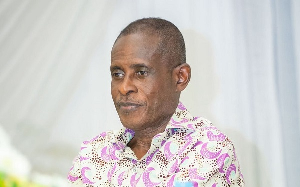Irmo, SC
July 9th, 2015
Talensi is over and the spin-doctors are in full mode, explaining how what they failed to predict happened and its significance.
Before going to my take-homes, here are a few caveats and cautions.
First, both the President and the NPP flag-bearer went overboard in saying that Talensi would predict how 2016 would go. It will not.
Second, we were reminded about the importance of former US Speaker, Tip O’Neal’s assertion that “all politics is local”. In Talensi, campaigning on “Dumsor” and the struggles of the Cedi against the dollar proved to be at best inappropriate.
Here are my take-aways and admonitions:
First, the NDC recaptured the seat and improved their votes over the 2012 number while the NPP went in the opposite direction. The NDC moved from 9,119 to 10,366(from 33 to 42%). The NPP went from 11380 to 6845 (from 41 to 27%). While this would appear to be good news for the NDC, it is not.
Nearly 6 in 10 of the voters in Talensi rejected the NDC candidate. It means that translating this into Presidential terms, the NDC can be beaten in 2016 in Talensi. This should give a lot of encouragement to the NPP and worry the NDC quite a bit, particularly since this is in the north where they are supposed to be strong.
Second, the PNC got nearly as many votes as the NPP and combining the votes of the NPP and the PNC would have delivered a stunning and very significant symbolic victory for the opposition. Why did the two opposition parties not form an alliance? Could the leaders not count? What happened to visiting Buhari and getting tips? In my view, the central lesson of Gen Buhari’s campaign and victory was and is the significance of uniting the opposition. As Mac Manu used to say, “The NPP can never win every seat. Therefore, we must be prepared to form alliances in up to 30 SEATS in order to deny them to the NDC. The payoff of this is that there will be the generation of good-will that will help our presidential candidate garner votes in the “alliance constituencies”. Of course, it is difficult for a party that is divided to form alliances with other parties since charity begins at home.
Third, the NPP’s ongoing marginalization of our Chair and General Secretary is a self-inflicted wound that would keep harming us until it is solved with the open-hearted welcome of the two without preconditions to the offices that they won fair and square. The absence of our first Chair from the North, Paul Afoko, from the centre of action in this by-election in the north was tragic. Having Paul at the helm and consigning Osafo Maafo to the south and in silence during the campaign in view of his recent ethnic pronouncements would have been wise and beneficial. I know the sycophants will be out in force to blame Paul and Kwabena for failing to show up and to swear that their absence did not make one bit of a difference but they will be wrong—just as they have been repeatedly in the last 8 years. When a Chairman of a party requires National Security protection from his own party, something is seriously wrong and he cannot discharge effectively the functions of his office.
Finally, violence in our politics is thriving. When former President Rawlings, who has two coups to his name and used to talk about the “ democratization of violence “ starts expressing concern about violence, it is a crisis. To be fair, some level of violence has always been in our politics. Names like Baffoe, Kolungugu, Agbobgloshie, Lamashegu, Adam Mahama, Azorka Boys, Bamba Boys and Invisible Forces have become synonymous with the violence and intimidation that have become all too common in our politics. The Mahama administration had an obligation to ensure that all those who sought to participate in the Talensi by-election were safe and they failed. However, when we condemn political violence by the NDC, we in the NPP will be more credible if the public knows we do not practice violence within our party. Violence in our politics belongs to the last century and our history, not this 21st century. Let us all work together to oppose violence within and between parties in our politics by going after those who practice it and those who sponsor it--- regardless of party.
Goodluck Jonathan defined it for all of us when he said, “My ambition is not worth a drop of any Nigerian’s blood”
Those who heed the true lessons of Talensi will celebrate in 2016.
Arthur Kobina Kennedy
Opinions of Saturday, 11 July 2015
Columnist: Kennedy, Arthur Kobina
Lessons From Talensi
Opinions













